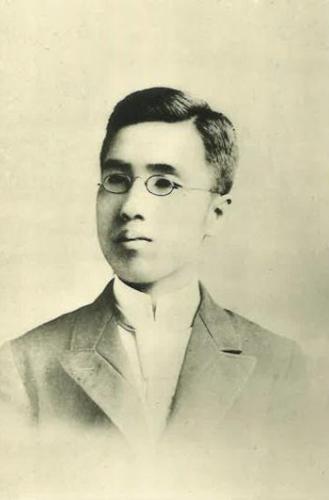UChicago's First Ph.D Recipient, Eiji ASADA, Bridges Important Cultural Exchange Between U.S. and Japan

Published on Jan 20, 2022
Written by UChicago News
Read the original article, here.
Understood to have been an important figure in the cultural exchange between the United States and Japan at the turn of the century, Eiji Asada helped bring English education to his native country. Earning the first doctoral degree awarded by the University during the convocation ceremony held on June 26, 1893, Asada was a linguist and scholar of religion. As a leading linguist who corresponded in French and German as well as English and Japanese, Asada is credited as one of the first to facilitate and promote the teaching of English in his home country. In addition to his work as a linguist, Asada studied religion and other subjects: His UChicago dissertation was titled “The Hebrew Text of Zechariah 1–8, Compared with the Different Ancient Versions.” He even wrote an explanation of Japanese poetry and metered verse, including the popular haiku form, for English-speaking readers. Asada also translated Semitic languages such as Hebrew and Aramaic for his research. According to Ayako Yoshimura, UChicago’s current Japanese studies librarian, he was an early proponent of Esperanto, the constructed language meant to make international communication easier. Yoshimura started getting questions about Asada soon after she joined UChicago Library in 2015. “One person even asked whether we sold goods commemorating his graduation,” she recalled. In 2018, a journalist from Japan also asked her about Heita Okabe, another Japanese student who attended the University in its early years and was credited with introducing American football to Japan after playing for UChicago under coach Amos Alonzo Stagg.
Around that same time, a former Hyde Park-area resident shared some stories about the neighborhood’s rich Japanese American history with Yoshimura after donating her mother’s kimono to Chicago’s Japanese Culture Center. By then, Yoshimura had realized there was potential for a deeper dive into the archives. “I thought: ‘I should know more about this history,’” Yoshimura said. “But if I’m doing the research, it would be best to share it with the community.” Ultimately, Yoshimura produced “Nikkei South Side: Japanese and Japanese Americans in Hyde Park and its Vicinity,” on display at Regenstein Library’s Special Collections exhibition gallery through Jan. 28 and currently open to UChicago faculty, students and staff, and an associated web exhibit that is freely available to all. Collecting materials ranging from photographs to news clippings, letters, baseball jerseys and memorabilia from the 1893 World’s Fair, the exhibition looks at the complex history of the cultural exchange and community ties between the University of Chicago, Japan and the South Side of Chicago.
After graduation, Eiji Asada became a professor at what is now the Tokyo University of Foreign Studies. He also served as president of the University of Chicago Club of Japan, giving a welcome address to Harry Pratt Judson, Harper’s successor as president, in 1914. Asada died on Nov. 9, 1914, at age 49. He had collapsed while reading in the library at the university where he worked. Two years after his death, his wife Mikako Asada published a collection of his correspondence and writings titled “The Memoirs of Dr. Asada.”
In 1993, the University welcomed five of Asada’s descendants from Japan to attend the June Convocation ceremony and mark the 100th anniversary of his graduation. Today, the University’s Center for East Asian Studies offers an annual prize in his honor, the Asada Eiji B.A. Thesis Prize, for the best undergraduate thesis related to China, Japan and Korea.
 THE UNIVERSITY OF CHICAGO
THE UNIVERSITY OF CHICAGO

